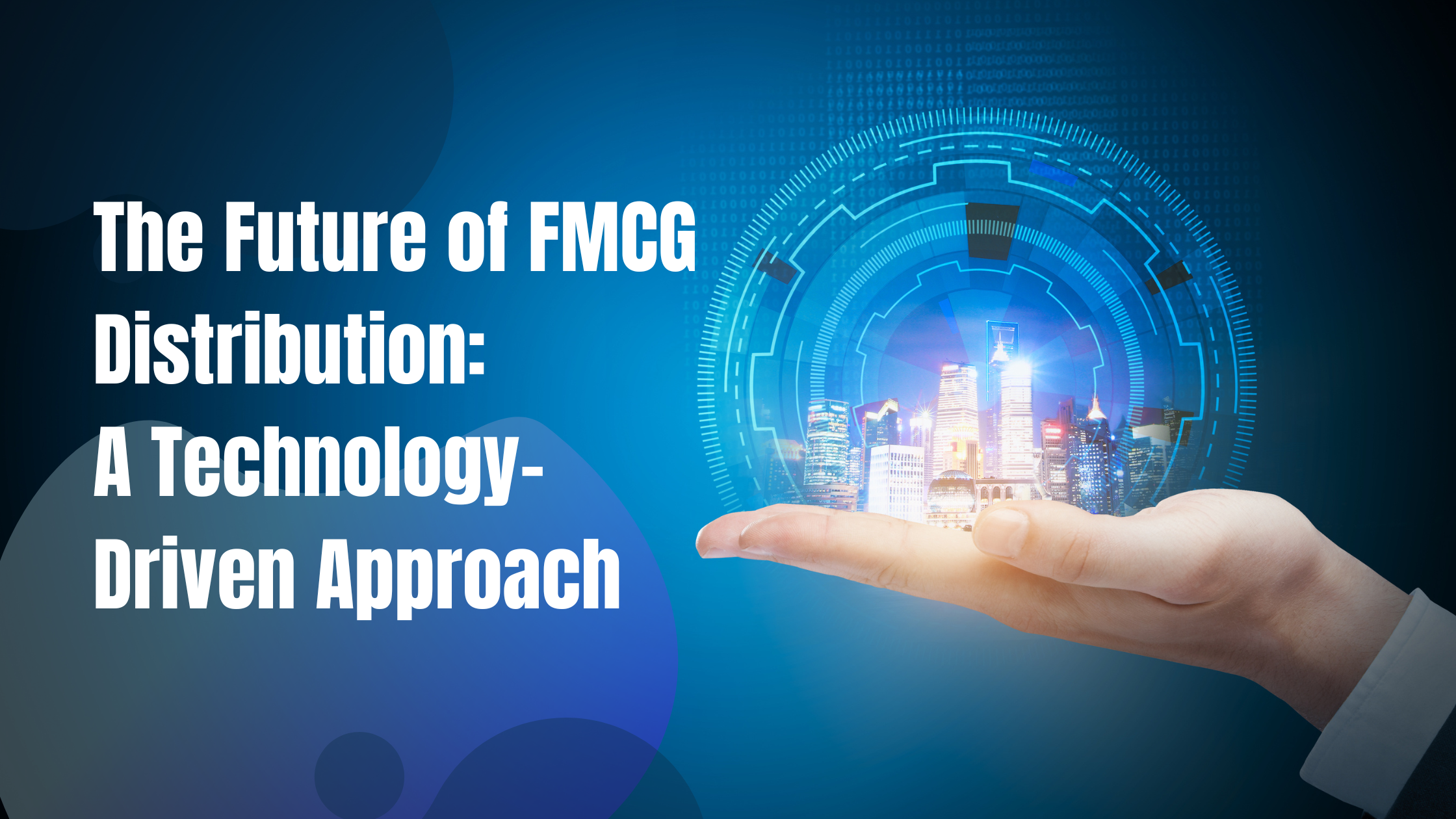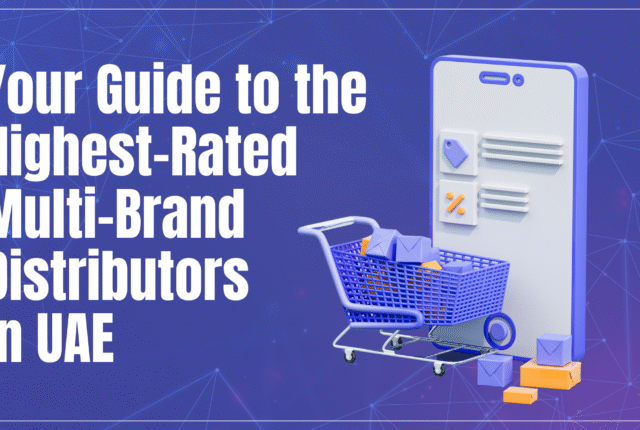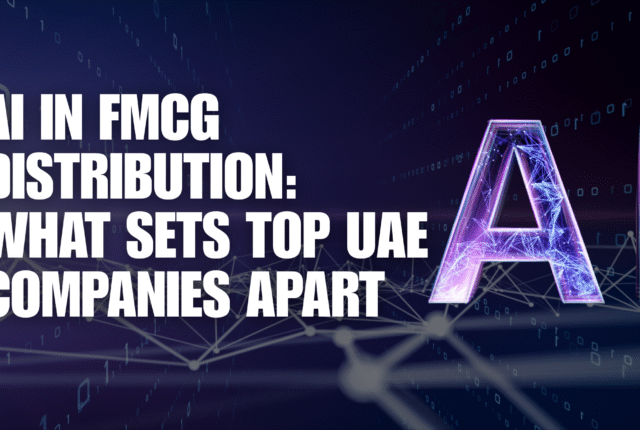
The Future of FMCG Distribution: A Technology-Driven Approach
The fast-moving consumer goods (FMCG) industry has significantly transformed over the past few years. One of the key drivers of this change has been the adoption of advanced technology across different sectors, including FMCG brand distribution. Businesses realize that staying ahead in the competitive market requires innovation, especially in how products are delivered to customers. As a result, FMCG companies are increasingly turning to technology—particularly Artificial Intelligence (AI)—to improve their distribution networks, increase efficiency, and meet growing consumer demands.
With the advent of AI-powered automation, predictive analytics, and digital supply chain tools, businesses now have more opportunities to improve the speed and accuracy of their operations. These tools not only improve efficiency but also help reduce costs while ensuring customer satisfaction. For FMCG brands, this transition to a technology-driven and AI-supported approach is crucial to staying competitive in a rapidly evolving market.
A report by McKinsey highlighted that AI-enabled digital supply chains can reduce operational costs by up to 30%. This statistic underscores the critical role that artificial intelligence plays in ensuring the future success of FMCG companies like Sara UAE, who are embracing innovative solutions to drive growth.
The Role of Technology and AI in Transforming FMCG Distribution
In recent years, technology has fundamentally altered how FMCG products are distributed. One of the primary areas where this is evident is in AI-driven digital supply chains. AI and automation enable businesses to optimize operations, reducing the time it takes for products to reach the shelves and minimizing human errors. This precision is critical in the FMCG sector, where product availability and timely delivery play a crucial role in customer satisfaction.
Additionally, AI-driven data and analytics are becoming increasingly important. By leveraging machine learning models, businesses can forecast demand with greater accuracy, ensuring that the right products are available at the right time. This helps prevent stockouts, reduce excess inventory, and improve profitability.
Emerging AI Technologies Driving FMCG Distribution
Several emerging technologies are driving the future of FMCG distribution, with AI being the foundation:
- AI-Powered Demand Forecasting: FMCG companies use AI to predict customer needs, adjust inventory, and optimize distribution routes—reducing delivery times and costs.
- Blockchain with AI Integration: Together, these technologies improve traceability, ensuring safe and transparent supply chains.
- IoT + AI: IoT devices, combined with AI analytics, provide real-time visibility into shipments, warehouse conditions, and product safety.
- AI Robotics & Automation: Smart robots powered by AI streamline tasks like order picking, sorting, and packing in warehouses—boosting efficiency and minimizing manual errors.
According to a study by Deloitte, adopting AI-powered supply chain solutions can result in cost reductions of up to 20%, further proving the financial benefits of a tech-driven approach.
E-commerce, Omnichannel Distribution, and AI
With the rise of e-commerce, FMCG companies are moving toward AI-powered omnichannel strategies. Consumers expect fast, reliable deliveries whether they purchase online or in-store. AI enables companies to personalize customer journeys, forecast order spikes, and optimize last-mile delivery.
An AI-backed omnichannel approach ensures seamless shopping experiences—whether a consumer buys online, opts for home delivery, or picks up in-store. This flexibility builds customer loyalty in an increasingly competitive market.
Challenges and Opportunities in AI-Driven FMCG Distribution
While the adoption of technology brings numerous benefits, implementing AI solutions also presents challenges. Many FMCG companies face difficulties integrating AI with existing systems. There are also concerns about AI data privacy, security, and compliance.
However, the opportunities are immense:
- AI automation reduces repetitive tasks, saving costs.
- AI-powered route optimization cuts fuel consumption and lowers environmental impact.
- AI sustainability tools forecast demand to reduce waste and overproduction.
For FMCG companies, AI is not just about efficiency—it’s about building sustainable, intelligent, and future-ready distribution systems.
The Future of FMCG Distribution: AI Trends to Watch
As AI continues to evolve, several trends are shaping the future of FMCG distribution:
- AI for Sustainability: Optimizing transportation and inventory management to cut carbon footprints.
- Hyper-Personalization: AI analyzes customer behavior to deliver tailored offers and product recommendations.
- AI in Drones & Autonomous Vehicles: Future last-mile delivery solutions will rely heavily on AI navigation and decision-making systems.
How Sara UAE is Leading the AI-Driven Future
Sara UAE is at the forefront of adopting AI-driven FMCG distribution. By leveraging advanced technologies such as AI-based demand forecasting, smart warehousing, and IoT tracking, the company enhances efficiency, reduces costs, and delivers a superior customer experience.
Sara UAE’s commitment to integrating AI into operations ensures smarter logistics, optimized supply chains, and sustainable practices—setting a new standard for FMCG distribution in the region.
Conclusion
The future of FMCG distribution is undeniably shaped by AI and advanced technology. With innovations such as AI, blockchain, IoT, and automation, companies can optimize supply chains, enhance customer satisfaction, and drive growth.Sara UAE leads FMCG distribution by embracing AI-powered technology and upholding core values. Their strategic focus on AI-driven efficiency, sustainability, and innovation solidifies their position as a leader in the industry, ensuring long-term success in the AI era.





Leave a Reply